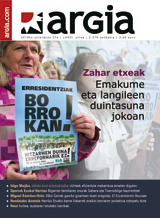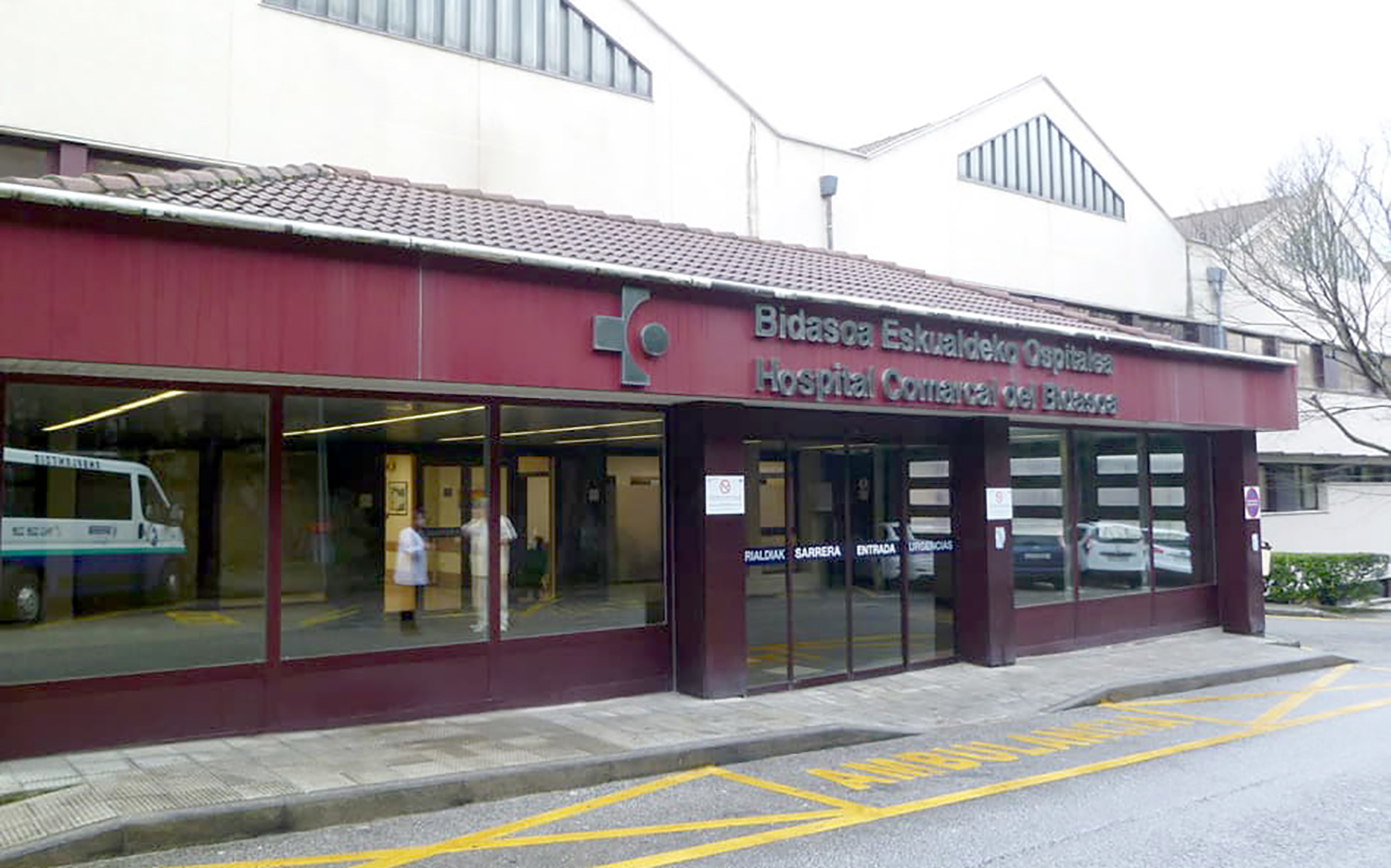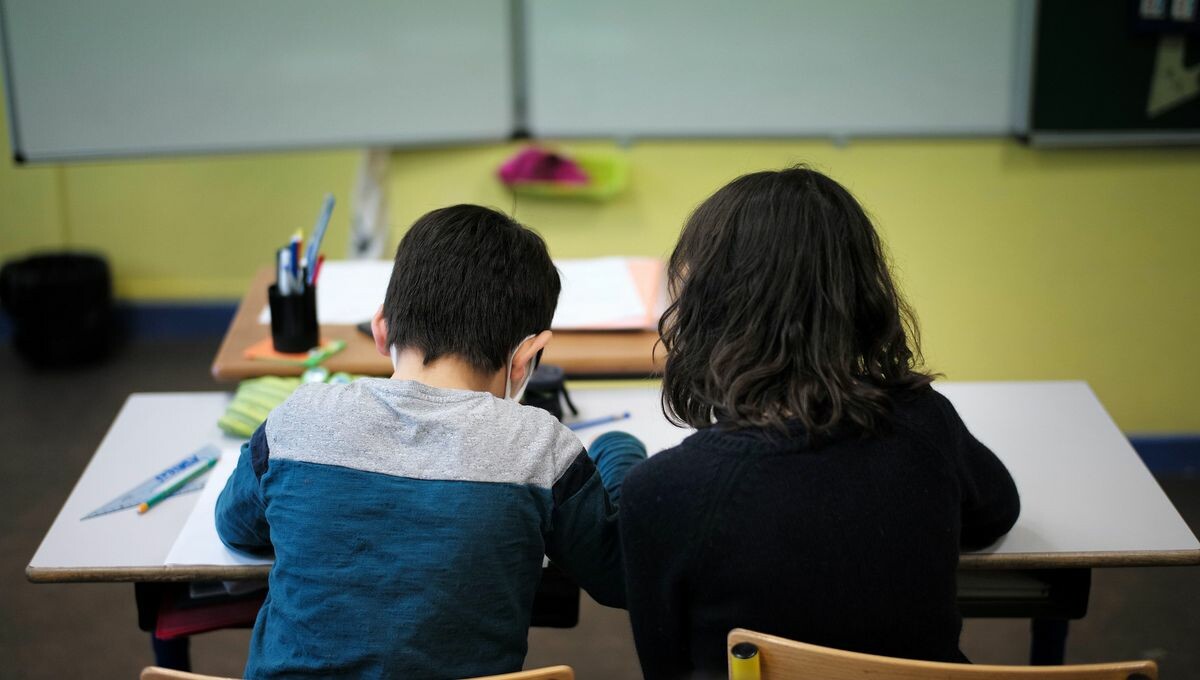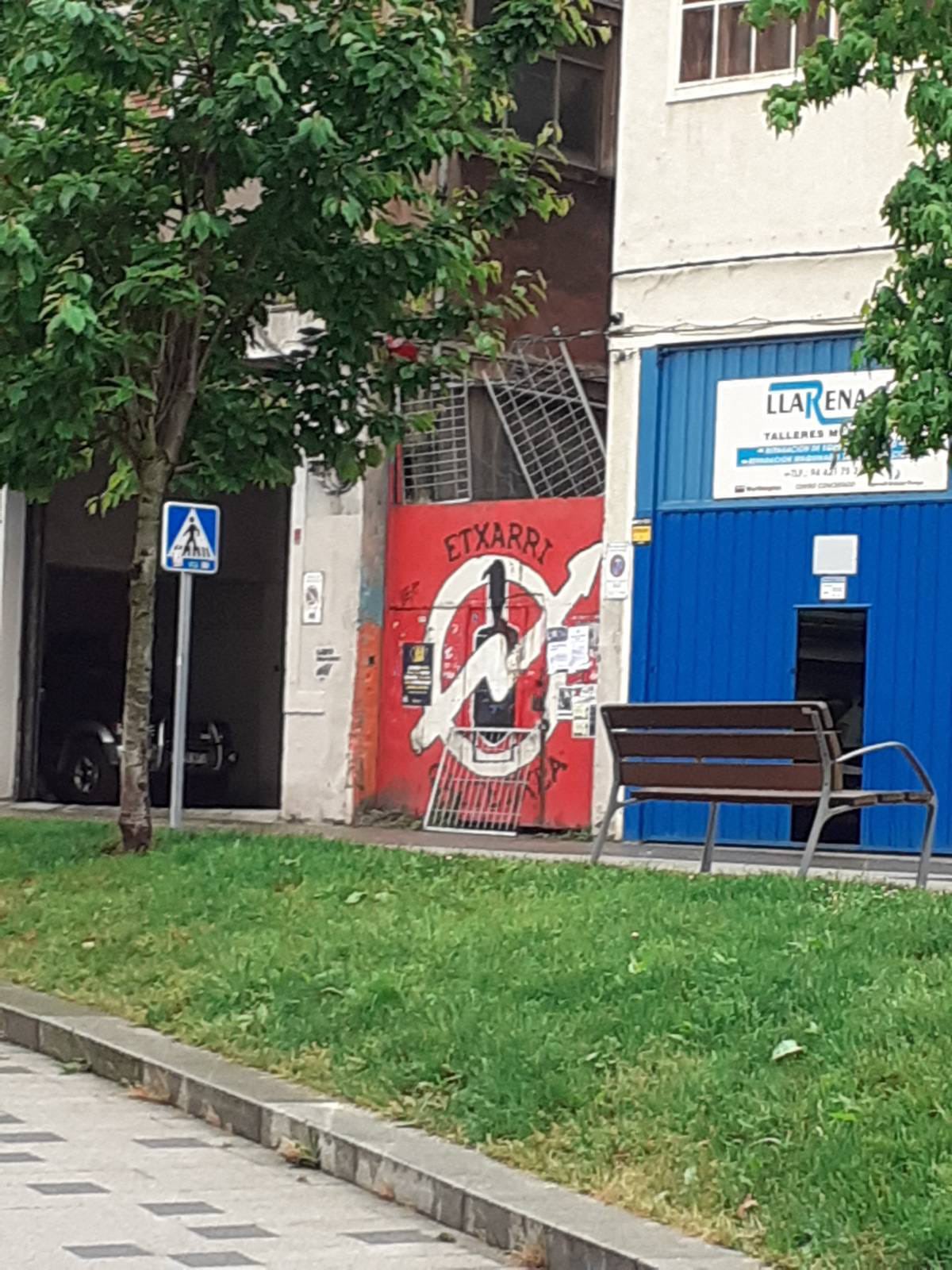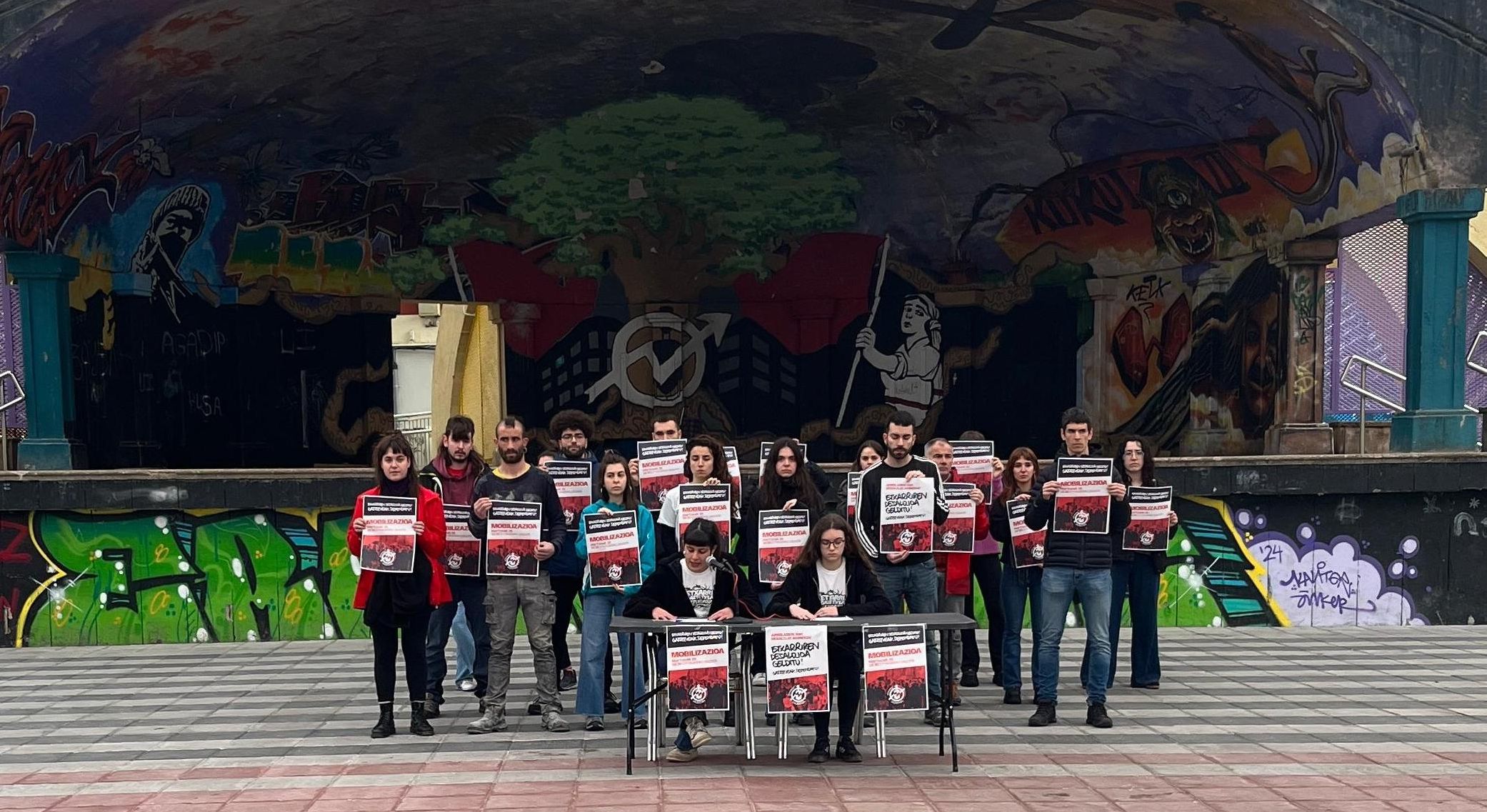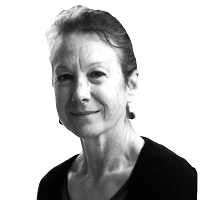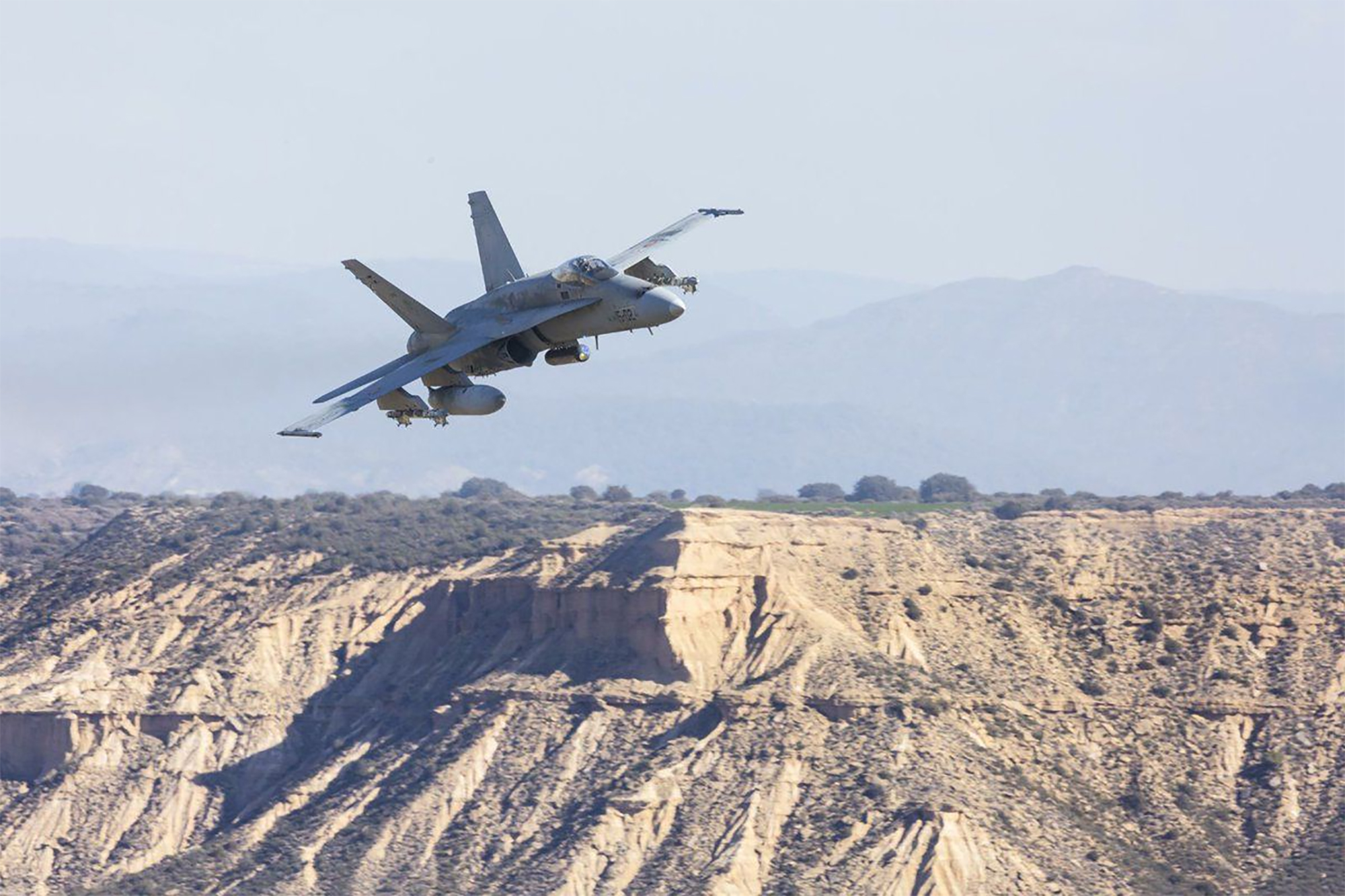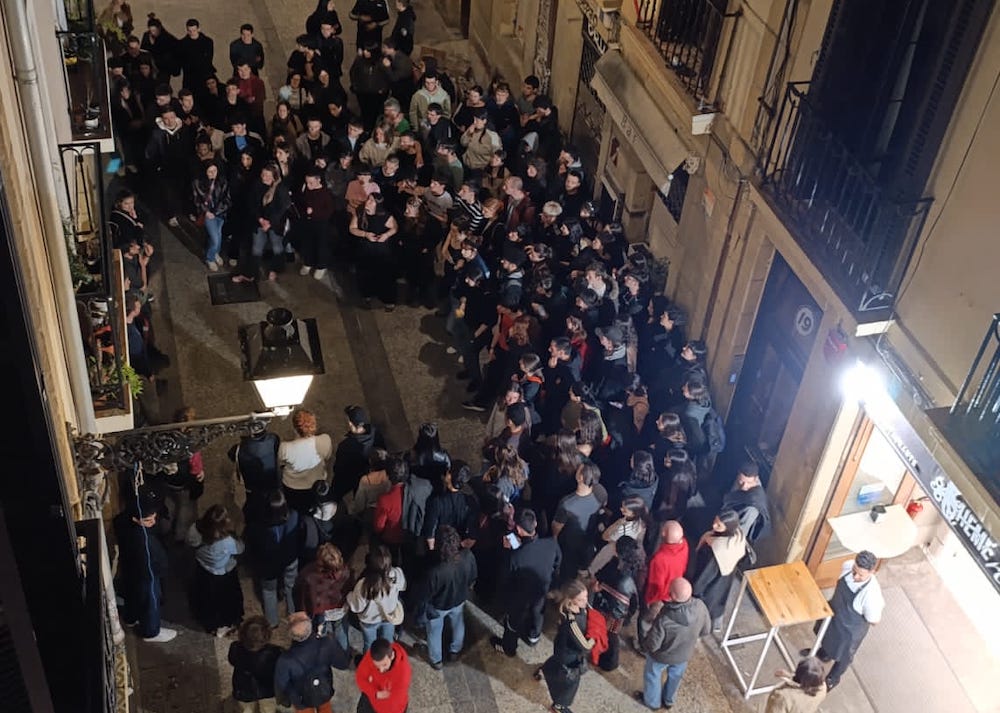In summer Euskal Herria to replenish forces
- Yana and Vladysler didn't live the most serious nuclear accident of the last few decades. Neither Adala nor Aaziza were able to see how the neighbors had escaped their lands. But all four have been affected by the events in their respective countries. Far from these massacres, in summer, these girls and boys have new families waiting for in the Basque Country.
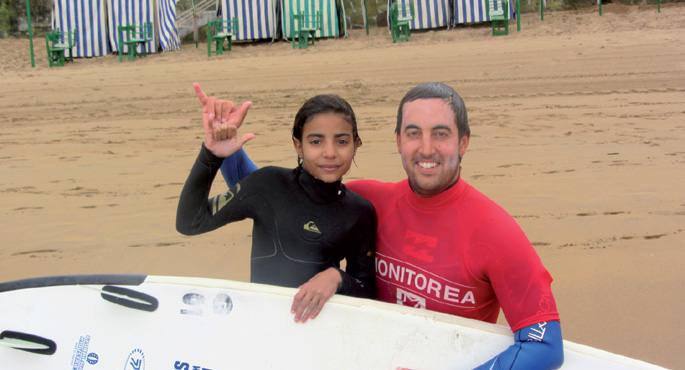
In April 1986, one of the reactors at the Chernobyl nuclear power plant burned down and one of the largest nuclear accidents in history occurred. And, consequently, the old and new generations who suffer the pollution caused by the dead, the wounded and even by the radioactive cloud. In 1975, Spain handed over the Western Sahara to Mauritania and Morocco. And since then, the declaration of independence, the war, the flight of the Sahrawi people, the refugee camps in Algeria, the long years of waiting for the UN referendum, the oppression of the Sahrawi people who remain in occupied territory and the new Sahrawi generations who have to endure the harsh conditions of the camps without knowing their original terrain.
The Chernobyl Association and the Holidays in Peace initiative, among others, develop solidarity projects to alleviate some of the pain and precarious living conditions that they cause, and that children can spend two months in summer among us.
Yana Yagodinska and Vladyslav Yagodinsky, for example, will be able to leave the area contaminated by radioactivity and eat healthier foods, as well as undergo medical tests. This year 270 children from the Chernobyl Association have come to Hego Euskal Herria, of whom 50 will be with us for the first time in summer. Hundreds of Saharawi children, such as Adala Mohammed Ali and Aaziza Abba Mohammed, will also be able to avoid high summer temperatures in the desert (over 50 degrees) thanks to the Holidays in Peace programme.
Brothers at the same time
to facilitate adaptation
Children, aged 10 and 8, have arrived in Yana and Slava (as they call the child), from a village near Chernobyl. In Lezama the days will pass until the end of August, in the house of Stibaliz Zabala and in the house of Oier Barañain. The experience is not new, as it has been four years since they first arrived. It was not the intention of the welcoming family to welcome two children together, but in the interview with the association the opportunity arose, after making sure that it would be easier to adapt and wondering “why not? ”, they took to Yana and Slava. “They say that the first year is the worst and ours was pretty good, they quickly adapted to us. For them it was like discovering a new world,” says Zabala, who remembers how the children touched the carpet of hair that was on the ground when they entered the room. According to Barañain, the hot water in the shower and the big TV also surprised Yana and Slava: “For them, small things are great; we don’t realize it.”
The children did not know Euskera, at first they managed by gestures, but from the second day they began to say words and the process was simple. Children have already learned Basque. And it is not a language that only the Basques use: in their school there are more children who spend the summer in Donostia and with them speak in Basque Yana and Slava. “I do it here with my friends,” the girl once replied to Barañain asking how she spoke so well in Basque.
Lezama's partner has a son just over a year old. Yana and Slava are well understood with it, although sometimes they have to use tricks: “By bringing the little boy from the school, the other two have to hide in the room and shut up to take him to the nap, if he doesn’t want to stay playing with them.” They have a younger brother in Ukraine, so they have experience with children. In addition, they are teaching Euskera to their Ukrainian brother, hoping that he will also come here at the age of 6.
While they're here, at first they call home every week to talk to their mother, and then every fifteen days. Throughout the year, when kids are there, Zabala and Barañain call them to know how they are, but kids don't really like to tell things about them. “They don’t want to explain the harsh living conditions they have, they just say good things and silence others.” Zabala considers that the area has stopped following the accident: “Everything is contaminated, what they eat, what they drink, and they don’t have money to buy water in the store. Food is priced here and salaries are very low. In addition, they work now yes and now they don’t.” The shortage of money also influences health, because everything has to be paid for. The Slava, for example, came a lame for the first year, as it fell as a child and did not manage to recover properly. They operated here during the second summer.
In addition, the youngest have the opportunity to learn about other cultures, and they have been surprised that women work outside the home, for example. “They realize things. “Here the father and the mother work, and the mother also has the car here, why not there?” Zabala explains.
Sahrawi children wanted
The girls Adala Mohammed and Aaziza Abba Mohammed left the Aaiun refugee camp a few weeks ago to move to Zarautz, where they have been residing for two months. This year, Adala will spend a second year at the home of Garbiñe Arteaga and Jose Mari Iñigo, even though last year he was unable to attend the appointment. Aaziza will face Asier Oñederra and Kristina Peña. However, it is an experienced host family, as seven years ago he had another Saharawi girl in his house. His name was Ahmed and he came to Euskal Herria without being able to put his foot on the ground. As soon as he arrived he was transferred to the doctor, practiced swimming and bicycle reinforcement exercises, and left here with the ability to run. The next year, they tried to recover it, but it was impossible. After having children, this year they have decided to bring a child back.
Aaziza has been among them for a short time, but they have some fears: the language, how it will develop with their sons and daughters… Not only the host families, but also the children are afraid. For example, the horn is afraid of darkness and the first year he was in Zarautz slept with Arteaga and Iñigo. On the bed, although he had most of his place next to the man, Adala wanted to sleep near her, and Iñigo believes it is because of the Saharawi relationship with the men. “At two weeks I slept by my side and gave my hand to sleep.” It is also a sign of the relationship of respect or rigor that girls have with men not to eat at the table until the man in the house tells them. Aaziza doesn't play that way, and Peña thinks having young kids at home helps him do it. However, “it is the father who commands, with Asier he goes with less nonsense. If my father says something, there is no alternative. But that’s a reflection of what they live there,” says Peña.
Iñigo added that the Saharawi children who spend the summer in the same locality tend to group together: “It’s harder to confuse with others by language.” This attitude worries Peña, who has a 7-year-old daughter and a 3-year-old son, and who wants everyone to move. The daughter has understood the opportunity of her parents and wants to facilitate her stay to Aaziza. “Language is a problem, when they can communicate without language they become crazy, proud and accomplices, but when they need language to communicate they become difficult.”
The Basque language is the language of his home and is the only one used so far by the eldest daughter, but the few words that Aaziza knows between the languages here are in Spanish. With Adala, on the other hand, he speaks Arabic, although with the rest he does so in Spanish.
In the Holidays in Peace program, boys and girls leaving refugee camps try to make five-year cycles with the same family. If one year is not possible, the child is sought for another family. The Sahrawi Association is in charge of looking for families in and around Zarautz and, as the interviewees themselves have explained, more people were ready to welcome children. “I think people end up and leave the five-year cycle. You are very happy, but you have to give a lot and then the child leaves and you have to start again from the beginning,” says Iñigo.
Iñigo himself, for example, has doubted the reception: “I don’t know how good it is that you first give him this sweet and then take it away, but you have to look at the good side.” Oñederra, putting himself on the skin of the children, it is clear that it serves them to see that there is something else out of their scope, to motivate them: “Otherwise they only know the dunes and if they know nothing else they will ask them in vain to fight for something else, because they will not know why they fight.”
Aljeriatik datoz Mohamed eta Said [izenak asmatuak dira], herri beretik. “Txiki-txikitatik ezagutzen dugu elkar, eskolatik”. Ibilbide ezberdinak egin arren, egun, elkarrekin bizi dira Donostian, kale egoeran. Manteoko etxoletan bizi ziren, joan den astean Poliziak... [+]
Pazienteek Donostiara joan behar dute arreta jasotzeko. Osasun Bidasoa plataforma herritarrak salatu du itxierak “are gehiago hondatuko” duela eskualdeko osasun publikoa.
Seaska Sarean inklusio egoeran dauden 165 ikasleei laguntza bermatzeko hasi dute kanpaina, antolaketa propioa eratuta. Frantziako Hezkuntza Ministerioaren jarrera salatu dute kanpaina aurkezteko prentsaurrekoan, behar bereziak dituzten haurren inklusiorako baliabide... [+]
Ikerketa parte-hartzailea eta gogoetatsua bultzatzen du Biharamunen Lantegia kooperatibak, eta zientzia eta ikerketa herriarengana hurbiltzeko lan egiten du. Duela urte eta erditik egoitza Bidarten dauka, eta Institut Curie-rekin elkarlanean Iker Herria ikerketa zentroa sortzeko... [+]
Amenabar enpresak Bilboko Udalaren eskutik apirilaren 4rako agindu duten desalojoaren kontra azaldu dira bilkuran. Poliziak indarrez kanporatu ditu. Ostiral honetan18.30ean, Errekaldeko Plazatik hasiko den manifestaziora batzeko deia luzatu dute gazteek, baita desalojoaren... [+]
Europako Batzordeak aurkeztu duen plana ustezko gerra edo hondamendi baten aurrean “bizirauteko” kit batetik harago doa: hogeita hamar neurri proposatu ditu eskoletan, enpresetan eta herritarren artean militarismoa eta beldurra sustatuko dutenak.
Bilboko Udalak eta Amenabar enpresak proiektu urbanistiko baten pean itxi nahi dute 10 urtez auzoko bizitza sozialaren erdigunea izan den topalekua. Horren aurrean, hiriko 55 kolektibok baino gehiagok manifestu bat sinatu dute prozesua gelditzeko exijitzeko.
Bilbo, 1954. Hiriko Alfer eta Gaizkileen Auzitegia homosexualen aurka jazartzen hasi zen, erregimen frankistak izen bereko legea (Ley de Vagos y Maleantes, 1933) espresuki horretarako egokitu ondoren. Frankismoak homosexualen aurka egiten zuen lehenago ere, eta 1970ean legea... [+]
Danimarkatik iritsi zaigu berria: 400 urtez estatuak eskainitako zerbitzua etengo du PostNord enpresa publikoak, eta eskutitzak banatzeari utziko dio 2025 urtea amaitzean. Gobernuak adierazi du enpresa publikoak negozioa paketeak banatzera bideratuko duela. Bi arrazoi eman ditu... [+]
“Hondakinik ez platerean!”. Hori zen kontsigna gure txikitako otorduetan. Janariak zeozer sakratu bazukeen, batez ere ogiak; lurrera erori eta, jasotakoan, musua eman behar zitzaion. Harik eta adin zozoan mamia baztertzeko moda etorri zen arte, lodiarazten zuelakoan... [+]
Hezkuntzari buruzko legediak, Ekonomia Lankidetza eta Garapenerako Erakundearen eta planetako jaun eta jabeen aginduei jarraituz, ikasleek ikasketa etapa bakoitzaren amaieran “irteera-profil” jakin bat izatea bilatzen du. Ez pentsa profila zerbait itxia eta bukatua... [+]
“Ez dugu gerraren aurrean etsi nahi, ez dugulako hilerrietako bakea nahi”, dio manifestuak, eta agintariei irtenbide politiko baten alde lanean jartzeko eskatu diete. Sinatzaileen artean daude Delàs institutua, Gernika Gogoratuz edo Ongi Etorri Errefuxiatuak... [+]
Kritika artean abiatu dira Gasteizko Arana klinika zena Nazioarteko Babes Harrera Zentro bilakatzeko obrak. Ez auzokideak, ez errefuxiatuekin lan egiten duten gobernuz kanpoko erakundeak, ez PSEz bestelako alderdi politikoak ez daude ados proiektuarekin: makrozentroen ordez,... [+]
Joan den asteko kaleratze "ilegala" salatzeko, manifestaziora deitu dute ostiral arratsalderako.









